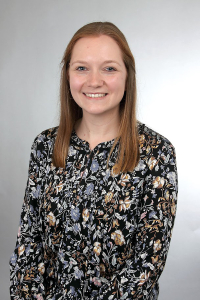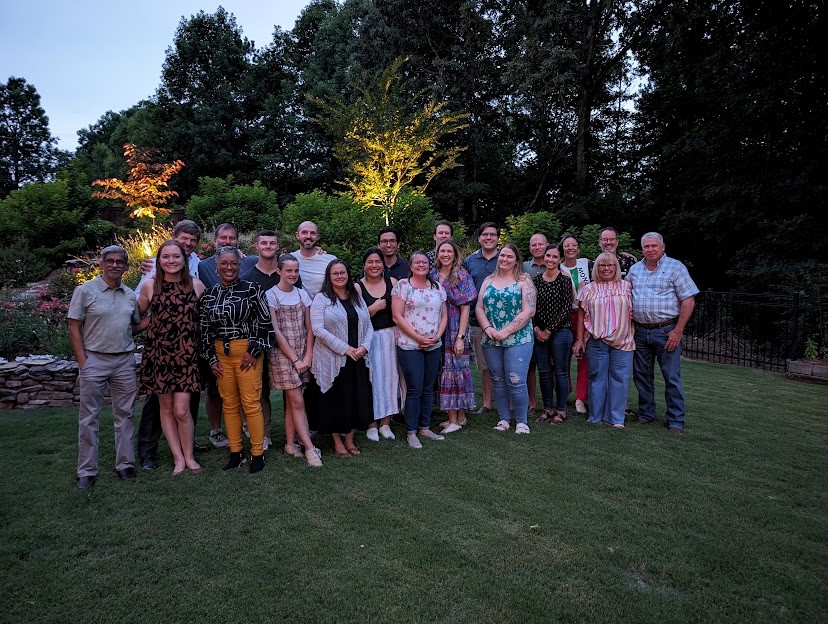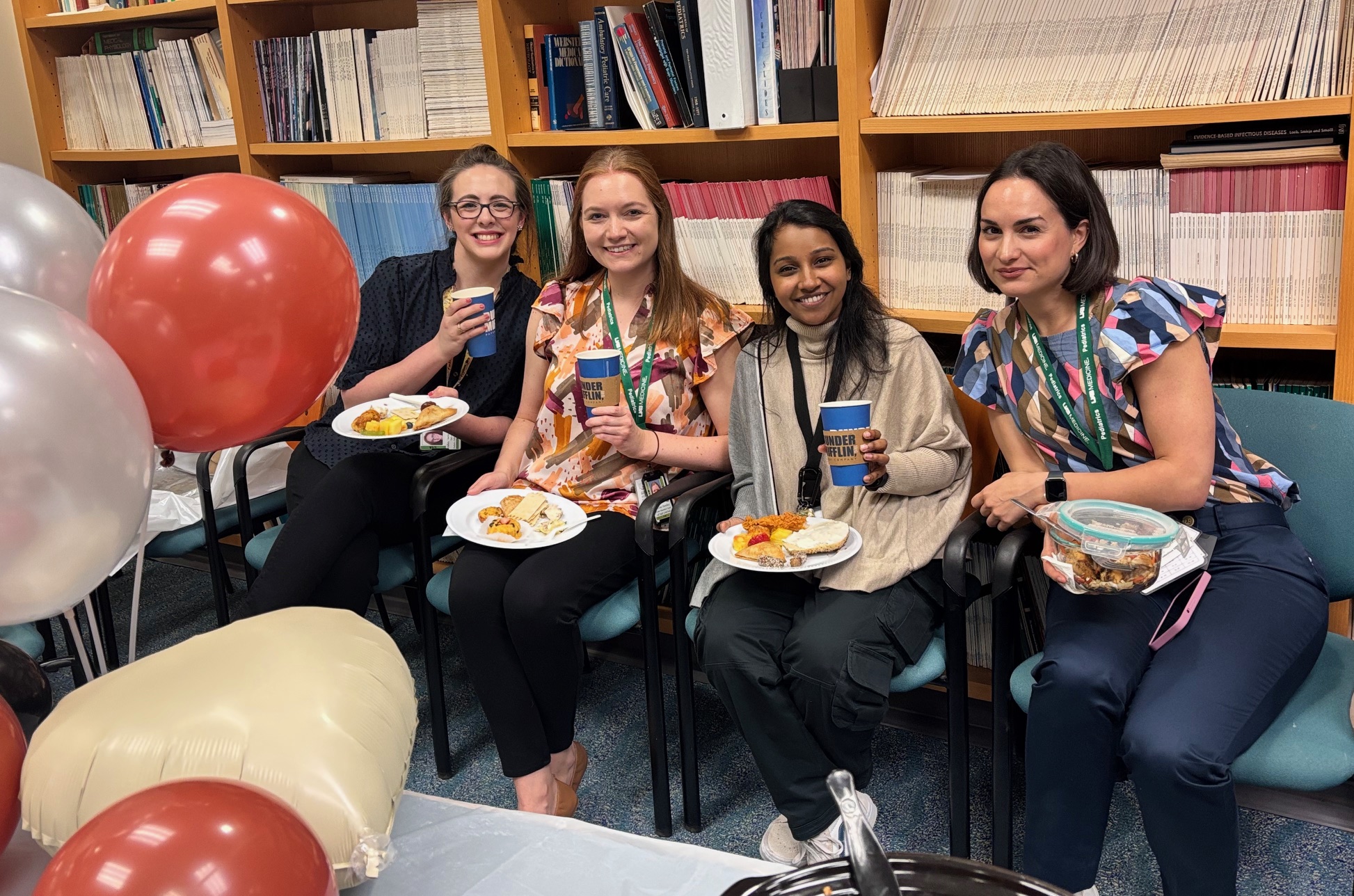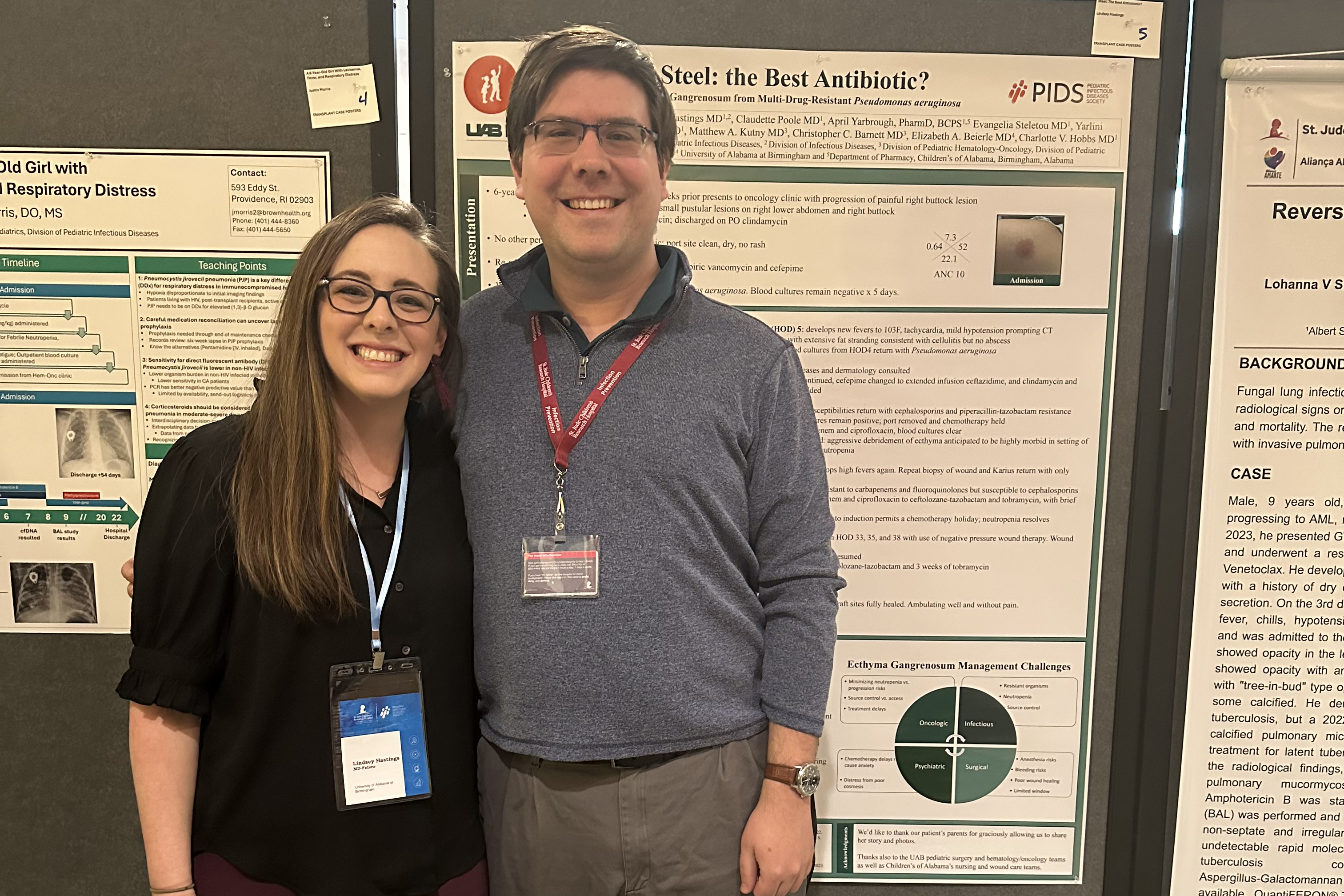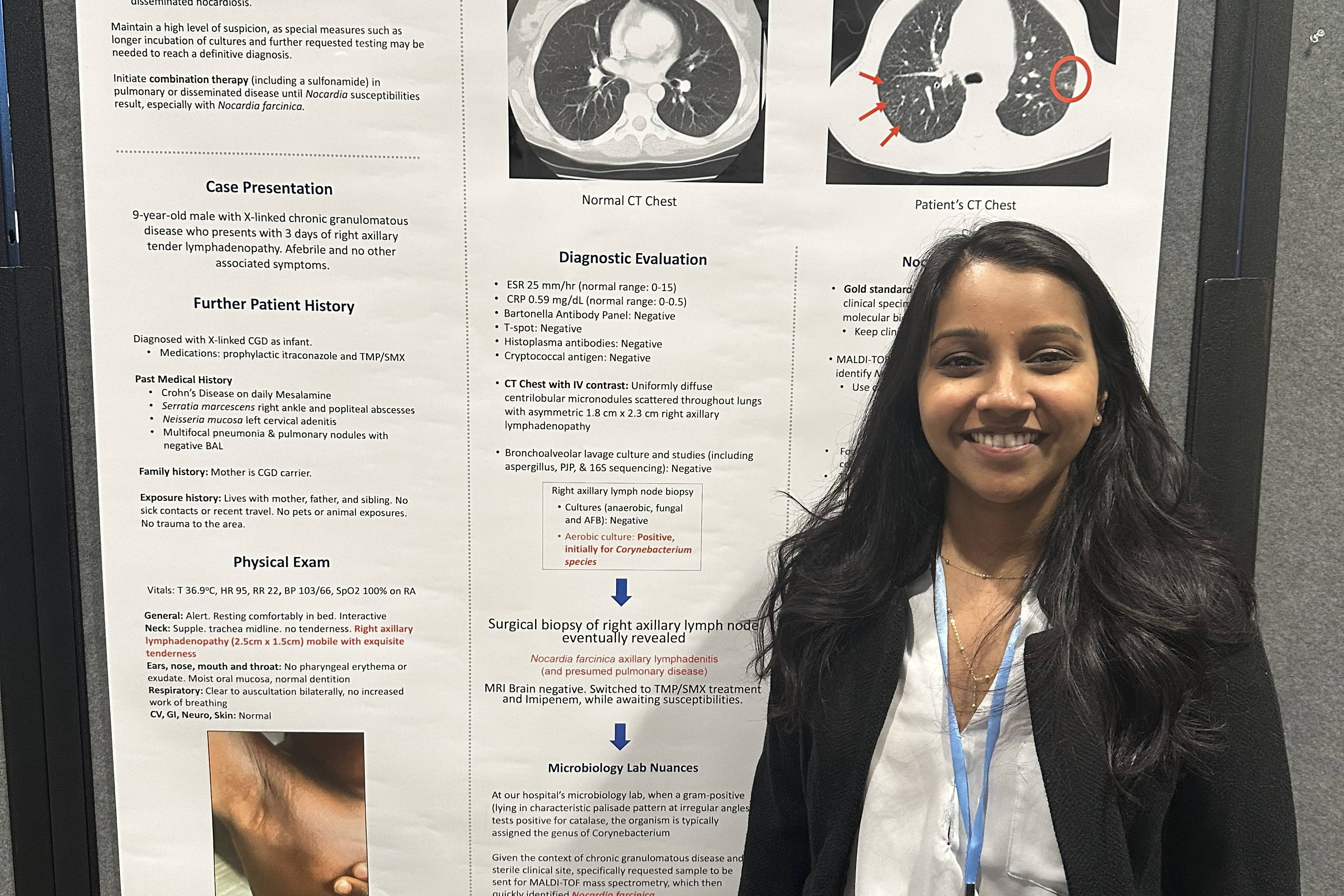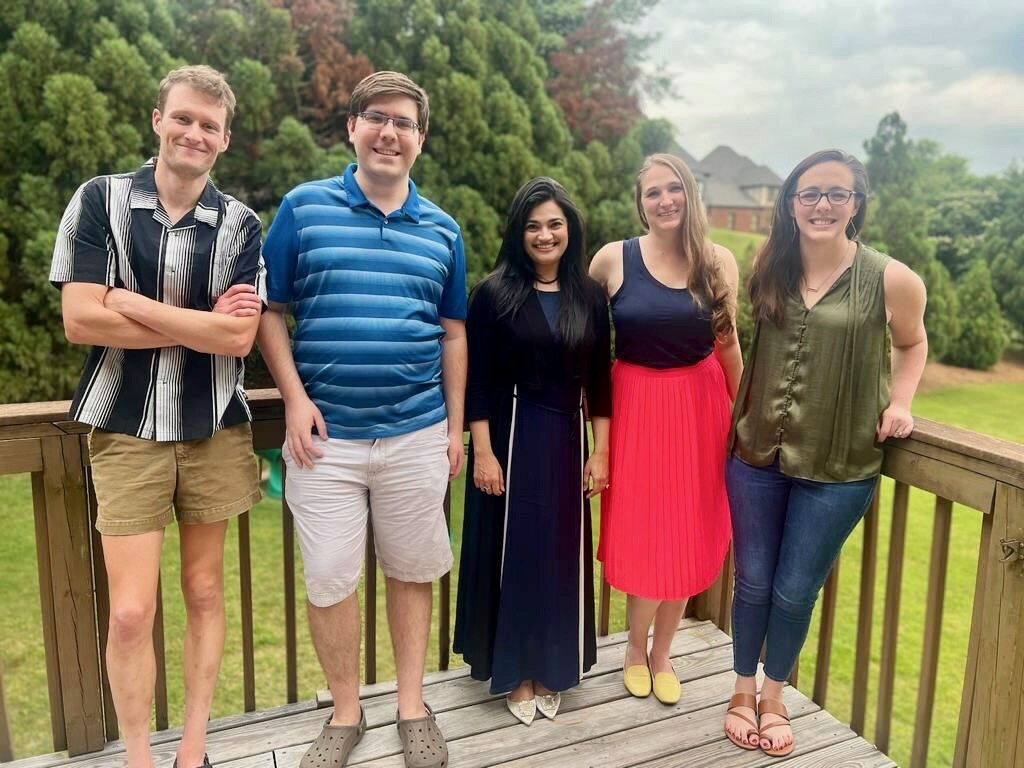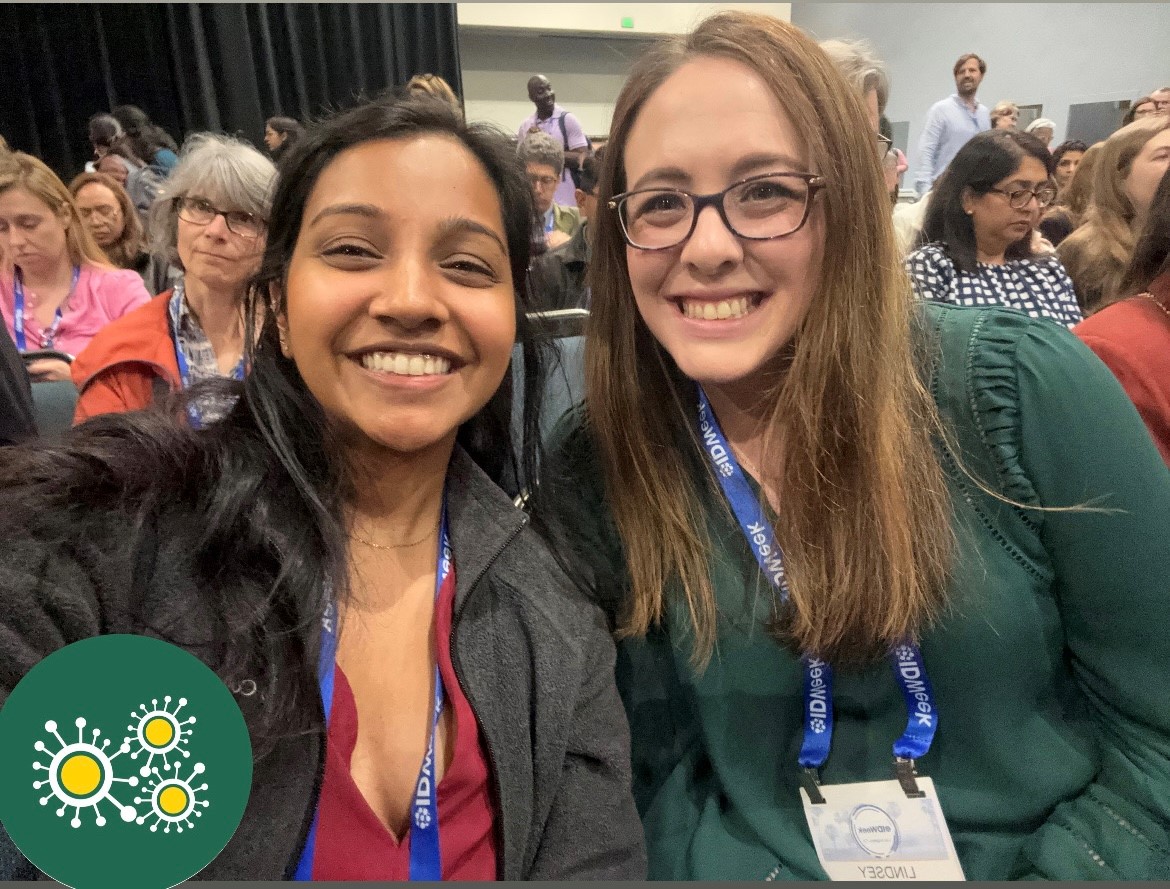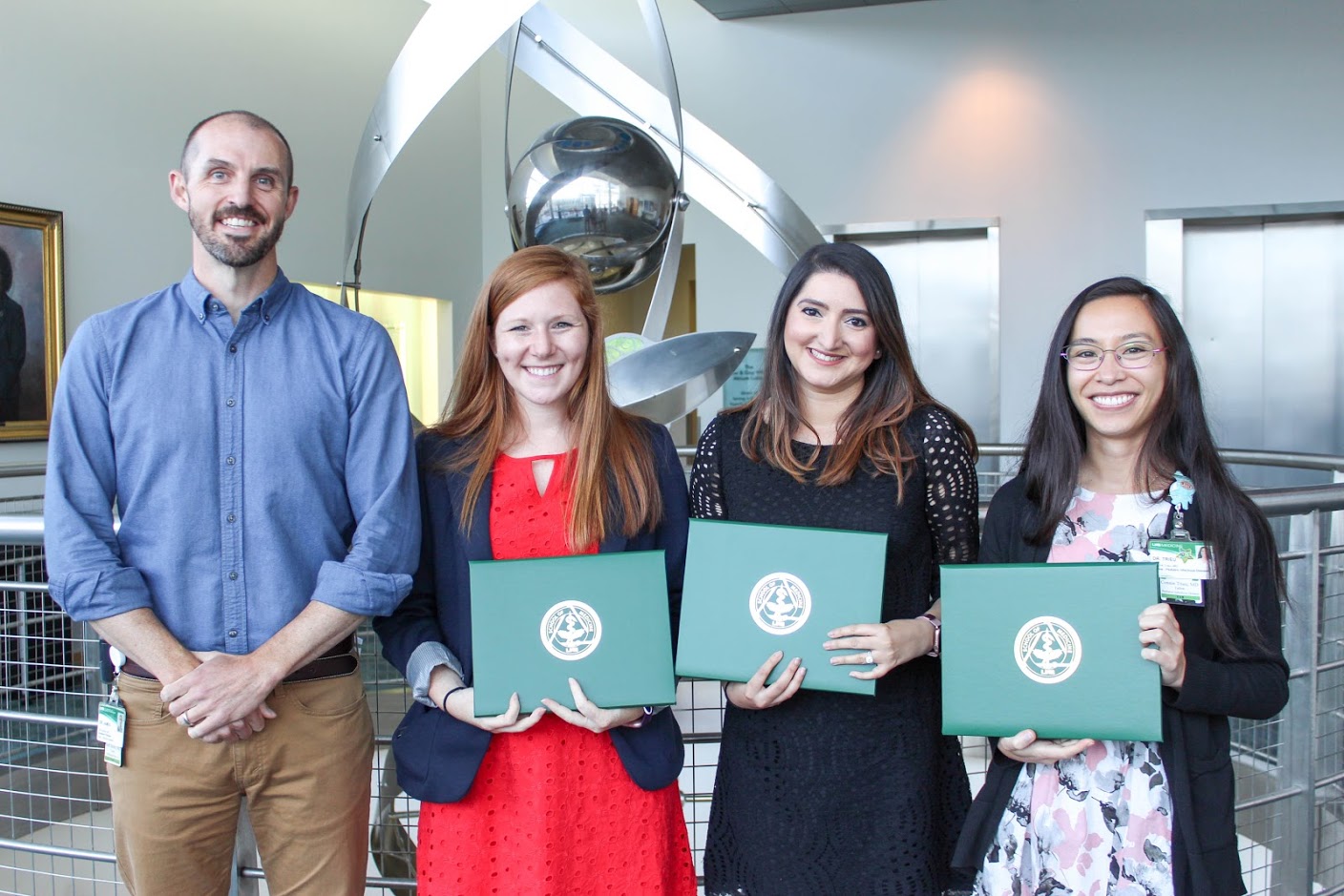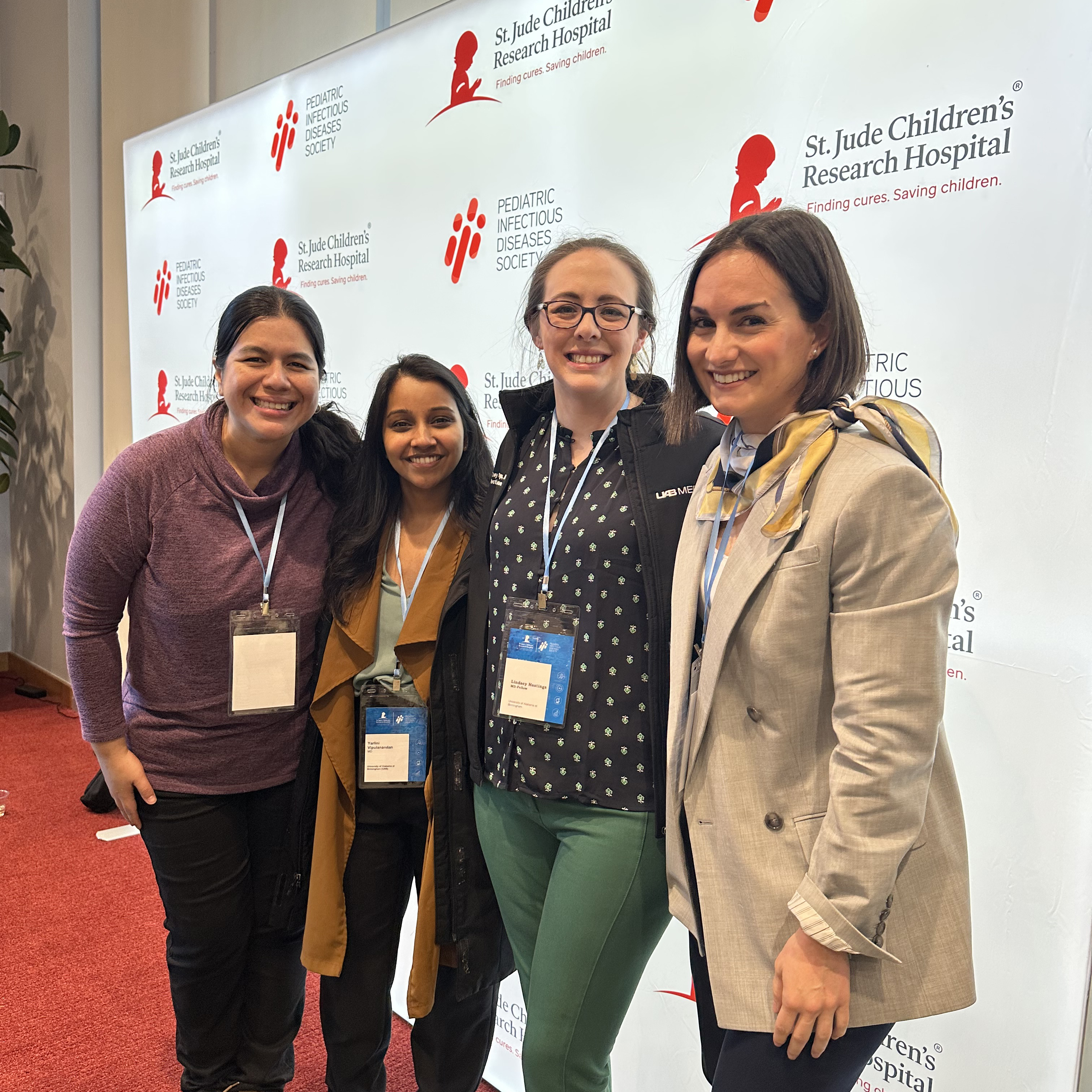The UAB Pediatric Infectious Diseases Fellowship is a three-year training program approved by the Accreditation Council for Graduate Medical Education (ACGME) and affiliated with the Heersink School of Medicine. Our program received accreditation from the ACGME in October 1998. As of 2025, we have had 33 fellows graduates from our program.
The mission of our program is to train, educate, and mentor fellows to become exceptional clinicians and researchers in the field of pediatric infectious diseases. Our trainees are immersed in a learning environment that values excellence in clinical care, scholarly activity, and professionalism. Our goal is to train and nurture academically-oriented pediatric infectious diseases physicians to be proficient in diagnosis and management of simple and complex infectious diseases problems, and to initiate and develop scholarly activities to further their knowledge in the field of pediatric infectious diseases.
During their training, fellows gain experience in a wide variety of clinical conditions and settings and participate in quality improvement and patient safety initiatives. We have robust antimicrobial stewardship and infection control programs that provide foundational training on these important areas of growth for our field, as well as a developing immunocompromised host service. Fellows are also are provided close mentorship and guidance for the development of successful research careers.
During their training, fellows will learn basic research principles in which to develop a project, follow it through completion, and prepare the project for publication and presentation. Additionally, fellows will have the opportunity to be both a student and teacher, as they will be involved in teaching residents and medical students. They will have supervised instruction in providing consultative services and communication with other physicians and other members of the healthcare team.
The program is flexible and is tailored to suit each individual’s interests, previous experience, and future career goals. We strive to prepare our trainees to be future leaders in healthcare who will advance the field of pediatric infectious diseases as innovative physician-scientists. Our track record of placing fellows in top clinical, research, and public health programs throughout the country is a testament to the success of this approach. All of our former fellows over the past decade have easily passed their pediatric infectious diseases boards.
The University of Alabama at Birmingham is an excellent academic medical center where all clinical and research activities are based on a single contiguous campus. Children’s of Alabama is located in the middle of this large medical complex, and is the only free-standing children’s hospital in the state. University Hospital is adjacent and physically connected to Children’s of Alabama. The research facilities for pediatric infectious diseases occupy an entire floor of the Children’s Harbor Center inside Children’s of Alabama, with our clinical offices on another entire floor in that building; both are connected by short enclosed walkways to Children’s of Alabama clinical facilities.
Program Information
-
We appreciate your interest in the UAB Pediatric Infectious Diseases Fellowship Program! This website provides introductory information describing our fellowship program and the UAB Division of Pediatric Infectious Diseases. Weblinks are provided here to acquaint you with the facilities we enjoy here Children's of Alabama and University Hospital. Also included is web information for our city attractions and accommodations.
If you are interested in applying to our program, we participate in the fall match and will begin reviewing applications on July 16, 2025. Pediatric Infectious Diseases Programs are using ERAS (Electronic Residency Application Service) now.
-
a personal statement
-
curriculum vitae
-
recent photograph
-
MSPE
-
Med School Transcript
-
USMLE/ COMLEX Transcript
-
Three letters of recommendation – one of the letters must be from your Department of Pediatrics Chairman or from your Residency Director.
All of the above information should be sent through ERAS.
Once we have received all of the requested information we will review your application and contact you regarding the possibility of interviewing at our program. We will begin interviews in September. This program participates in the National Resident Matching Program (NRMP) and will abide by the rules established by this group. Match Day is December 3, 2025.
We look forward to hearing from you. If you have any trouble accessing your electronic files or need further assistance, please feel free to contact Kate Hendley, our program coordinator, at kjhendley@uabmc.edu.
-
-
Our curriculum is designed to:
-
Present a wide variety of acute and chronic infectious diseases, including disorders of host defense;
-
Prepare the subspecialty resident to understand and deal with the principles of disease control, prevention of nosocomial infections, and immunization programs;
-
Teach basic epidemiologic and biostatistical methods and their application to clinical research and patient care;
-
Teach the subspecialty resident the functions and appropriate utilization of diagnostic microbiology, immunology, virology, mycology, and parasitology laboratories;
-
Prepare the subspecialty residents to conduct research in the broad area of pediatric infectious diseases;
-
Ensure acquisition of appropriate teaching skills that can be used in the area of pediatric infectious diseases.
Sample Schedule
First Year
Block 1
Microbiology/
Clinical ID
IntroductionBlock 2
Peds ID Consults
Block 3
Peds ID Consults
Block 4
Peds ID Consults
Block 5
Peds ID Consults
Block 6
Peds ID Consults
Block 7
Research
Block 8
Research
Block 9
Research
Block 10
Research
Block 11
Research
Block 12
Research
Second Year
Block 1
Peds ID Consults
Block 2
Peds ID Consults
Block 3
Peds ID Consults
Block 4
Research
Block 5
Research
Block 6
Research
Block 7
Research
Block 8
Research
Block 9
Research
Block 10
Research
Block 11
Research
Block 12
Research
Third Year
Block 1
Peds ID Consults
Block 2
Peds ID Consults
Block 3
Clinical Elective
Block 4
Research
Block 5
Research
Block 6
Research
Block 7
Research
Block 8
Research
Block 9
Research
Block 10
Research
Block 11
Research
Block 12
Research
Fellows are given three weeks of vacation per year.
Click here for a PDF of this sample schedule.
Division Conferences
The Division of Pediatric Infectious Diseases convenes a weekly clinical conference, which serves as a forum for discussion of recent inpatient and outpatient consultations and journal clubs. Clinical conference occurs once per week and the fellow on the consultation service is responsible for preparing and presenting selected cases at this conference. Several additional conferences are shared with the Division of Adult Infectious Diseases in the Department of Medicine, including a weekly lecture series on topics in clinical infectious diseases, and a weekly case conference featuring pediatric and adult patients. Fellows are encouraged to attend these conferences throughout their training. In addition, the Department Microbiology and Immunology coordinates a weekly seminar series on mechanisms of infection and microbial pathogenesis. Fellows are encouraged to attend these sessions during their second and third years of training.
Teaching Staff
Scott James, M.D., Assistant Professor, Fellowship Program Director
Claudette Poole, M.D., Assistant Professor, Associate Fellowship Program Director
Richard Whitley, M.D., Professor, Co-Division Director
David Kimberlin, M.D., Professor, Co-Division Director
William Britt, M.D., Professor
Suresh Boppana, M.D., Professor
Cecelia Hutto, M.D., Professor
Swetha Pinninti, M.D., Assistant Professor, Clinical Program Director
Shannon Ross, M.D., Associate Professor -
-
Fellows are required to spend a minimum of 10 months of inpatient clinical training during their three-years of training. The clinical schedule is flexible with intensive clinical experience typically taking place in the first year of training. This clinical experience includes five to six months on the inpatient consultation service, time in the Pediatric Infectious Disease Clinic and the Maternal-Child HIV Clinic (family clinic), two to four weeks in the clinical microbiology laboratories, and exposure to activities of the Infection Control, Antimicrobial Stewardship, and Pharmacy & Therapeutics committees of Children's of Alabama.
If fellows are interested they are able to complete elective rotations at Children’s of Alabama, University Hospital, the Geographic Medicine Department, and the Jefferson County Department of Public Health. Examples of these rotations include:
Children’s of Alabama
-
pediatric pulmonary medicine
-
immunology
-
rheumatology
-
Stem Cell Transplant Center
University Hosptial
-
adult infectious disease service
Jefferson County Department of Public Health
-
Travel Medicine Clinic staffed by the members of the Geographic Medicine Department
-
Sexually Transmitted Clinic staffed by the adult infectious disease faculty
Clinical training consists of monthly rotations with a supervising infectious diseases faculty member. The fellow fields phone calls from referring physicians and rounds with the attending physician daily. Fellows supervises medical students and pediatric and medicine/pediatric residents serving on the infectious diseases team. Fellows are never required to take in-house night call and are given one day off per week (averaged monthly) during their clinical rotations. Fellows typically take calls by pager at night during their months on service excluding their days off; however, in accord with ACGME guidelines, fellows are not required to be responsible for calls more than every third night averaged monthly. In addition, clinical training includes outpatient care of children with infectious diseases including those with HIV infection.
The second and third years of the fellowship are devoted almost entirely to scholarly activities, with fellows spending one to two months per year on the inpatient consultation service.
Scope of Clinical Services
Clinical rotations at Children’s of Alabama afford the fellow the opportunity to manage a variety of immunocompetent and immunocompromised pediatric patients. In addition, the UAB Women’s and Infant Center contains a 120-bed Regional Neonatal intensive Care Unit. All congenital and acquired heart defect surgeries and solid organ transplants (liver, kidney, heart) are performed at Children’s of Alabama. Approximately 450 consultations for infectious disease issues are performed yearly. The full spectrum of pathology is seen including infections in neonates, immunocompromised patients, and infections in immunocompetent patients, children with cystic fibrosis, hemoglobinopathies, post-surgical patients, children with a variety of malignancies, bone marrow transplant recipients, solid organ transplant recipients, and those with HIV infection.
Approximately 80 to 100 children born to HIV-infected women are followed in a specialized clinic (Family Clinic) at Children’s of Alabama. This clinic follows both children and their mothers. In addition to the clinic for HIV-exposed and infected infants, a separate pediatric infectious disease clinic is in operation weekly at Children’s of Alabama. Approximately 250 patients are seen yearly in this clinic for a variety of infectious diseases related problems. Approximately 70% are new patients referred from regional healthcare providers and 30% are followed-up patients from the Children’s of Alabama inpatient service. A Pediatric AIDS Clinical Trial Unit (ACTU) is located at Children’s of Alabama and the HIV-infected children participating in the PACTU protocols are also followed in the Family Clinic.
-
-
Fellows spend at least two thirds of their time, primarily during their second and third years, in a protected research environment during which they have no clinical responsibilities and no call. During the first few months of the fellowship, each fellow is given time to explore research opportunities within UAB and to identify a research mentor.
A variety of research projects are underway in the Division of Pediatric Infectious Diseases and fellows are encouraged to consider a research mentor from within the division. However, research mentors can be chosen from any of the departments at UAB where work related to infectious diseases is being carried out.
While all the members of pediatric infectious diseases division have strong research interests appropriate for the young investigator, previous or current fellows have undertaken their research training in other basic sciences departments. A variety of opportunities exist within the medical center, and all are in very close proximity to the pediatric infectious diseases offices. Fellows can consider mentors in the Department of Microbiology and Immunology, the Department of Medicine, the Department of Pathology, the Department of Cell Biology, the Department of Epidemiology and International Health and in other divisions within the Department of Pediatrics.
During the research phase of training, fellows are expected to develop an independent project, with close involvement of and supervision by their research mentor(s), and to present results periodically at the weekly division and monthly departmental research conferences. In addition, fellows are encouraged to present their experimental data at a minimum of one national meeting.
By completion of training the fellow will be subspecialty board eligible, meeting all requirements for completion of scholarly activities. For those fellows seeking to develop a research career post-fellowship, this also will include either publication of first authored manuscripts in peer-reviewed journals and/or preparation of an application for extramural support by a national funding agency. Opportunities are also available for fellows to enroll in graduate level courses in microbiology and immunology, and in courses offered by the School of Public Health in epidemiology, biostatistics, and international health. Support to develop grant-writing skills is available and extended support to continue training beyond the third year is available in select instances.
To learn more about research conducted by the faculty in the Division of Pediatric Infectious Diseases click the button below.
Faculty Research Interests
Richard Whitley, M.D. – Neonatal herpesvirus infections, HSV gene therapy and Antiviral therapy for pediatric viral infections
David Kimberlin, M.D. – Antiviral therapy for congenital and neonatal herpesvirus infections.
William Britt, M.D. – Congenital CMV, CMV virion assembly and animal models for CMV neuropathogenesis and hearing loss.
Suresh Boppana, M.D. – Congenital HCMV and CMV infections, consultant to the Alabama Dept. of Public Health for Tuberculosis.
Karen Fowler, M.D. – Epidemiologic studies of maternal and congenital cytomegalovirus (CMV) infections and the role of congenital CMV infection in sensorineural hearing loss in children.
Cecelia Hutto, M.D. – Epidemiology and diagnosis of Perinatal and congenital infections of perinatal and congenital infections and natural history of HIV infections in children.
Scott James, M.D. – Emerging antiviral resistance in congenital CMV infection and translational molecular virology with an emphasis on studying antiviral resistance in herpes viruses.
Larissa Pereboeva, Ph.D. - Research interests can be broadly defined as development of novel experimental anti-cancer therapeutics. Managing Vector and Viral Core for neurobiology and other UAB departments. Providing viral vectors as tools will help to facilitate and speed up research projects.
Shannon Ross, M.D. – Pathogenesis of congenital cytomegalovirus related to hearing loss and maternal cytomegalovirus infections.
Veronica Sanchez, Ph.D. – Effects of CMV infection of cytoskeletal dynamics and lipid metabolism and how these cellular processes contribute to viral pathogenesis.Fellows Research Interest
Evangelia (Lia) Steletou, M.D.-Research interests include congenital infections with a primary focus on syphilis and antimicrobial stewardship.
Yarlini Vipulanandan, M.D.- Research interests include both the study of congenital cytomegalovirus infections and the treatment of musculoskeletal infections, including septic arthritis and osteomyelitis.
Lindsey Hastings, M.D.- Research interests inluced the intersection of addiction and perinatal infections in mother-infant dyads, medications for opioid use disorder (MOUD) as harm reduction for perinatal HIV, HCV, and congenital syphilis, medical education.
-
Competency 1: Patient Care. Fellows must be able to provide patient care that is compassionate, appropriate, and effective for the treatment of health problems and the promotion of health.
Competency 2: Medical Knowledge. Fellows must demonstrate knowledge of established and evolving biomedical, clinical, epidemiological and social-behavioral sciences, as well as the application of this knowledge to patient care.
Competency 3: Practice-based Learning and Improvement. Fellows must demonstrate the ability to investigate and evaluate their care of patients, to appraise and assimilate scientific evidence, and to continuously improve patient care based on constant self-evaluation and life- long learning.
Competency 4: Interpersonal and Communication Skills. Fellows must demonstrate interpersonal and communication skills that result in the effective exchange of information and collaboration with patients, their families, and health professionals.
Competency 5: Professionalism. Fellows must demonstrate a commitment to carrying out professional responsibilities and an adherence to ethical principles.
Competency 6: Systems-based Practice. Fellows must demonstrate an awareness of and responsiveness to the larger context and system of health care, as well as the ability to call effectively on other resources in the system to provide optimal health care.
Promotion of Sub-Specialty Residents
-
The program director will have a written record of all faculty evaluations which are formally reviewed with the fellow.
-
Fellows will be advanced to the next level of responsibility based on evidence of their satisfactory progressive scholarship and professional growth. The Clinical Competency Committee will meet twice yearly to evaluate the Fellow’s readiness for promotion.
-
At the conclusion of the final year, the program director will provide a final written evaluation for each subspecialty resident who completes the program. This evaluation will include:
-
Verification of demonstrated professional ability and acquisition of appropriate clinical skills to practice competently and independently.
-
The final evaluation will be a part of the Fellow’s permanent record which is maintained by UAB.
-
-
Our Team
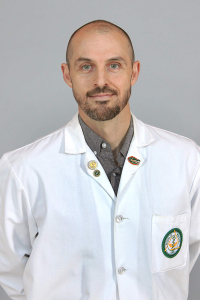
Scott James, M.D.
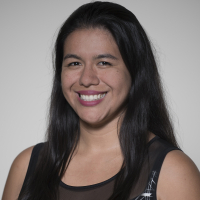
Maria Rueda-Altez, MD
